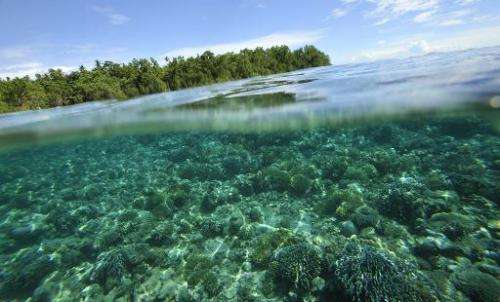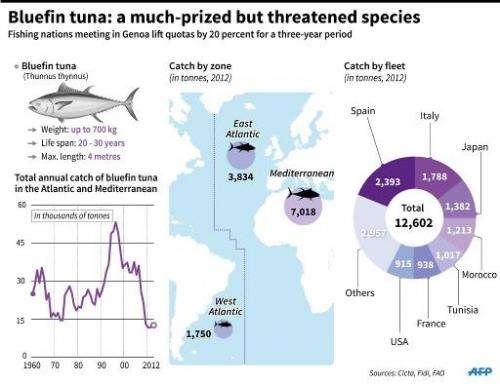World parks congress ends, urges more ocean protection

A once-in-a-decade global forum on parks closed in Sydney on Wednesday calling for an urgent increase in ocean protection and stressing the economic benefits of natural sanctuaries.
The World Parks Congress, with representatives from 160 nations, outlined a pathway for achieving a global target to protect at least 17 percent of land and 10 percent of oceans by 2020.
The forum, organised by the International Union for Conservation of Nature (IUCN), set out a broad agenda ranging from halting rainforest loss to planting 1.3 billion trees.
"We will scale up protection in landscapes, wetlands and seascapes to represent all sites essential for the conservation of nature, especially in the oceans," it said in its "Promise of Sydney".
The world is so far on track to meet the 2020 targets, but the document notes that threats to nature are now at the highest level in human history due to human consumption, population growth, and industrial activity.
The week-long meeting followed an Australian-led scientific review which found governments needed to do more to protect national parks or risk losing their economic, environmental and social benefits.
A key focus of the forum was on the economic benefits of conserving the world's wildernesses and their contribution to climate change mitigation and adaptation.
"Protected areas are by far the best investment the world can make to address some of today's biggest development challenges," said IUCN director general Julia Marton-Lefevre.

Ocean sanctuaries were emphasised, as threats to marine life have become more obvious, said Pew Charitable Trust's oceans director Michelle Grady.
"Destructive industrial fishing, rising ocean temperatures and pollution represent a 'perfect storm' threatening the future of the very thing that sustains life on this planet, our oceans," she said.
"At the centre of the world's action plan for the oceans are sanctuaries for marine life. Sanctuaries are proven to allow fish and other marine life to recover and rebuild, and also create resilience from the ravages of climate change."
The meeting also highlighted the need to ensure that protected areas were established in the right spots to prevent further biodiversity loss.
The IUCN updated its "red list" of threatened species at the congress, naming the Pacific bluefin tuna, a fish used in sushi and sashimi dishes, as at risk of extinction as the global food market places "unsustainable pressure" on the species and others.
The Chinese pufferfish, American eel, Chinese cobra and Australian black grass-dart butterfly also made the list while the world's largest-known earwig was declared extinct due to habitat destruction.
© 2014 AFP



















